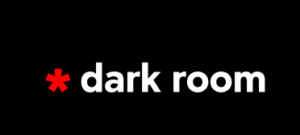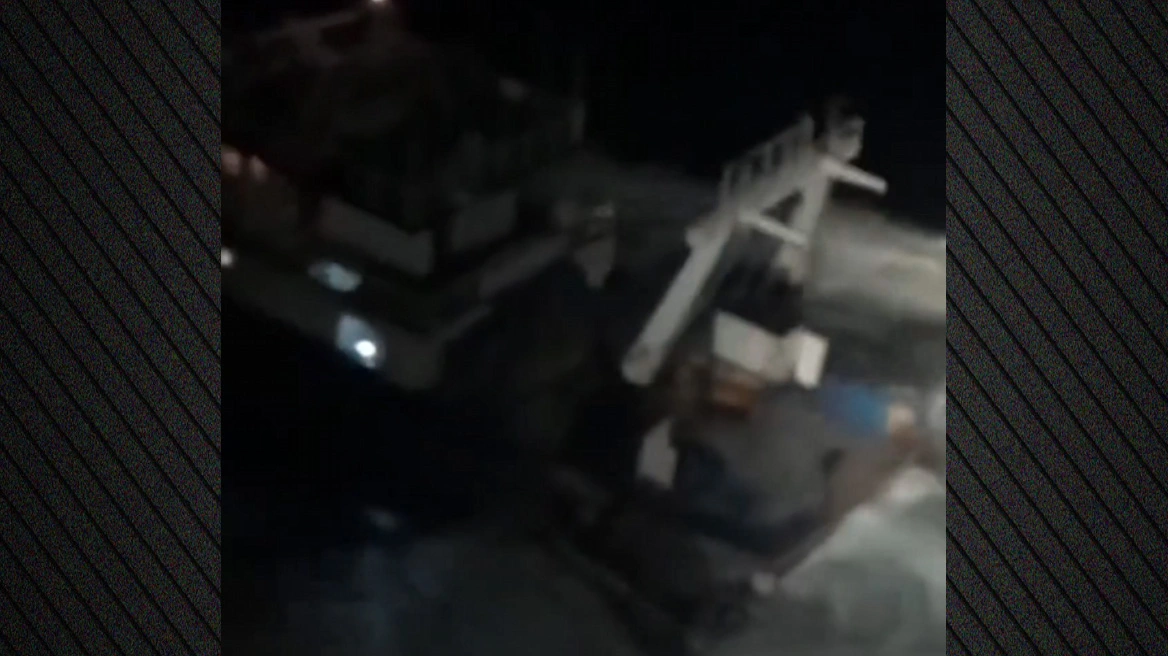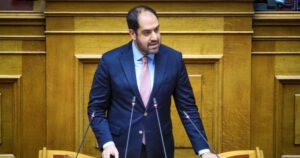Greetings. The expulsion of Samaras by Mitsotakis, I think, shouldn’t have surprised anyone closely following the daily political scene. The former prime minister had spent the past year dabbling in public grumbling and criticism. Initially, he found a good excuse to fiercely oppose the government in Parliament over its indeed unfortunate handling of the gay marriage issue, which monopolized the political agenda until the European elections. Then, the Samaras we all know picked up his classic favorite topic: national issues. Throughout his career, he had built an image as the authentic patriot and representative of the “Pure Right.” This all culminated in his recent statements, where he essentially accused the government and the prime minister himself of being national traitors.
Turk and Albanian Slayer
Samaras has been playing his classic tune as the “Turk-slayer” and “Albanian-slayer” for a few months now, targeting the “submissive Mitsotakis.” This is why I believe that if he didn’t expect his expulsion (on Saturday), he probably miscalculated the situation. For the record, let’s remember that it was during Samaras’s tenure as Minister of Foreign Affairs that hundreds of thousands of Albanians migrated to Greece—something that turned out to be for the best, as hindsight has shown. During his term, the country’s borders were opened to allow Northern Epirotes to enter, along with roughly a million native Albanians. As for Greek-Turkish relations, another area where Samaras has been critical, what’s actually happened since 2019 under Mitsotakis’s leadership—rather than the fears Samaras claims to have about today’s discussions with the Turks—is that the government has impressively bolstered the country’s defense after 25 years of stagnation, especially through frigates and aircraft. It has also established excellent diplomatic relations with the Americans. In two tense national standoffs in 2020—the migrant crisis at the Evros border and the Greek-Turkish naval incident involving a frigate in the Aegean—we came out ahead, not the other side. It was Dendias who “told it like it is” to Çavuşoğlu in Ankara, not Samaras’s recent allies, Karamanlis and Pavlopoulos, who stayed in a corner of the Presidential Mansion in Athens when Erdoğan tried to humiliate us on national issues. And let’s not forget that the moral instigators of the Novartis scandal were Samaras’s own buddies from Rafina—Prokopis and Papangelopoulos.
Why the Rift?
Many are asking why the relationship between Samaras and Mitsotakis soured so badly, especially since, until 2019, the former prime minister was almost a symbol of the anti-SYRIZA campaign and resistance for the New Democracy party. Samaras himself claims that, when he sought an active role in the new era of the ND’s governance, he was offered the position of the country’s Commissioner to the EU. However, this didn’t happen because Mitsotakis, according to Samaras, “used the excuse” that von der Leyen didn’t want a former prime minister for the position. Then came dark clouds in their relationship when “Mitsotakis didn’t imprison the masterminds behind the Novartis conspiracy.” Mitsotakis, if I’m not mistaken, has responses to both accusations. He essentially says something like, “I don’t control von der Leyen, nor do I manipulate the judiciary.” In any case, everyone believes what they want to believe. These two points of contention, according to Samaras, didn’t prevent the former prime minister from maintaining contact and a degree of balance with the government between 2019 and 2022. Through the prime minister’s office director, Grigoris Dimitriadis, Samaras managed to play a role in political affairs. He would pick up the phone and arrange issues, little favors, and placements for his people. These were innocent, everyday matters for a politician like Samaras, who wants to keep a role and “weight” in the scene. Later, Papastavrou, a close associate of his, played a similar role. This arrangement worked for a while, but after Papastavrou’s removal from Mitsotakis’s circle, the relationship between Samaras and the government completely broke down, and the “drama” began.
What Does He Want?
The obvious question in political circles is, what does Samaras want now—for himself and, by extension, for our lives—since political stability is a public concern? I’ve heard rumors about him creating a new party, but I don’t think this is easy or even feasible. After all, Samaras is too experienced a politician to believe he can recreate something like Political Spring from scratch. However, there’s no doubt he can and wants to harm ND. While I don’t believe he can pull 3–4 MPs to destabilize or bring down the government, I do think it’s a given that he’ll take this on as a personal mission moving forward. Samaras maintains excellent relations with almost all major oligarchs in Greece, at every level—even those whose businesses are heavily dependent on the government, as well as with newer rising stars. In the past, he had feuds with two key media moguls. But today, the classic saying “the enemy of my enemy is my friend” applies, as evidenced by their adoption of Samaras’s narrative alongside all the other political enemies of Mitsotakis. Let’s not forget that during the fall of Konstantinos Mitsotakis’s government, the sponsors weren’t close to Antonis either, yet he worked with them just fine—albeit as a one-off deal, as they say. As for what he’ll achieve, not even Samaras himself knows. However, he is far from an insignificant figure in the political landscape. He has allies in the broader Right and is likely the most determined to harm the current government, particularly Mitsotakis. That’s something you should never underestimate in a political opponent—ever.
Karamanlis?
Inevitably, when assessing the risk of weakening (and ultimately toppling) the government, one must also factor in Karamanlis. He has been on the same playing field as Samaras for some time now, albeit more cautiously, or perhaps more shrewdly. A first taste will come during a book presentation event on Friday, but it seems too early for anything comparable to what Samaras has done. Nonetheless, he is also standing in opposition, and I see no reason for him to cease his criticism and undermining, unless, of course, K.M. suddenly promises to make him President of the Republic—a scenario that seems highly unlikely and would drive away the centrist faction of the current ND.
And for the Government?
This weekend’s developments clearly do not favor the government. Anyone celebrating within the party, particularly in the prime minister’s circle, either doesn’t understand the situation or is just flattering their boss. Samaras’s maneuver to force K.M. to expel him comes at a time when the government is showing signs of fatigue—mainly due to the second term and the lack of a strong opposition to keep it sharp and on its toes. Despite PASOK’s now favorable polling numbers, reportedly nearing or exceeding 20%, internal leaks from the administration have also increased. Some of these leaks, originating from the “center of command,” only serve to erode cohesion, and thus require immediate attention—or rather containment—by Mitsotakis himself before the situation escalates further. We’ve seen this movie before, especially during second terms, spiced up with a scandal or two that “we might even manufacture ourselves from within,” resulting in an accelerated unraveling of the administration. The government might need a reboot to move forward and ensure the country doesn’t miss a valuable opportunity. As for rumors of a snap election, such thoughts aren’t even on Mitsotakis’s radar. Those stirring such talk likely don’t have good intentions.
Prime Minister, Governor, and Bankers
Moving on to market news, today at noon, Bloomberg is hosting a special event on Greek banks at the Hotel Grande Bretagne. The event begins with Prime Minister Kyriakos Mitsotakis participating in a Q&A session, followed by a panel discussion on the new era of the banking system with the CEOs of the four systemic banks. The event will conclude with another Q&A session featuring Greece’s central bank governor, Yannis Stournaras. Bloomberg TV journalist Francine Lacqua will moderate the event.
Paulson’s Speech
On December 9, during Capital Link’s event for the Greek stock market in New York, major Piraeus Bank shareholder (and possibly the next U.S. Secretary of the Treasury) John Paulson will deliver a speech. This will mark the famed investor’s first public remarks since the full privatization of Piraeus Bank—a cause he ardently supported—and the government’s exit from the banking sector. His speech promises to be significant not only for its content but also for its delivery. In addition to his address, Paulson will present an award to Bank of Greece Governor Yannis Stournaras, who played a pivotal role in addressing the issues the banking crisis left behind.
Strategic Collaboration Between Alpha Finance and Kepler Cheuvreux
Alpha Finance, the brokerage arm of Alpha Bank, is set to announce a strategic partnership with Kepler Cheuvreux, Europe’s largest independent financial services provider by size, trading volume, and equity coverage. This collaboration is another fruit of the broader Alpha Bank–UniCredit agreement, reaffirming the Alpha Bank leadership’s recent statement that this alliance integrates Alpha Bank into a larger European financial ecosystem. The partnership is expected to yield substantial benefits for both firms and for the Greek stock market and publicly listed companies. Through Kepler Cheuvreux’s platform, which employs 600 specialists across 14 financial centers and connects with approximately 1,300 institutional investors, Greek equities will gain significantly improved access to foreign investment portfolios. The platform offers services such as corporate access (roadshows, conferences, one-on-one meetings), which, combined with Alpha Finance’s financial analysis, will enable a broader range of foreign investors to discover and invest in Greek companies. Furthermore, Alpha Finance’s Greek institutional clients will gain access to Kepler Cheuvreux’s services, including financial analysis covering 90% of the continental European equity market, and the ability to conduct transactions via Kepler’s platform, which processes daily trading volumes exceeding €1.5 billion.
Mystakidis’s Next Steps for Aegean Baltic Bank
Greek billionaire Telis Mystakidis has successfully passed all evaluation processes in Frankfurt and secured the coveted “fit & proper” certification from the European Central Bank. This means the completion of his acquisition of a majority stake in Aegean Baltic Bank (ABBank) is now only weeks away, with the process expected to wrap up by early next year at the latest. For now, the investor expresses full confidence in the bank’s current management, with no immediate changes anticipated. ABBank, with assets of €1.2 billion and net profits of €21.4 million in the first nine months, presents a promising picture. Its specialty as a shipping-focused bank makes it one of the largest managers of syndicated shipping loans in Greece. As ABBank awaits its major shareholder transition with Mystakidis’s entry, Scope Ratings has begun covering the bank, assigning it a credit rating of BB with a stable outlook. S&P Global has also recently reaffirmed its B+ rating with positive prospects. Mystakidis reportedly plans to expand ABBank’s operations into new areas while preserving its specialized character.
Masdar nearing the final stretch for TERNA Energy
We’ve reached mid-November, and by the end of the month (most likely) or at the latest in early December, the transaction for 67% of TERNA Energy, which will transfer to Masdar, will take place. The final regulatory green light has already been granted by Polish authorities (necessary because TERNA Energy has operations in Poland). After that, the Arab investors will need to initiate the public offering procedures to acquire the remaining 33% of the shares, completing the largest “green” deal ever in Greece, valued at €3.2 billion. Provided there are no unforeseen delays in the approval of the prospectus, the public offer could launch in December. On a related note, Abdulaziz Alobaidli, Chief Operating Officer of Masdar, speaking during events at the Greek pavilion at COP29 in Baku, described the acquisition of TERNA Energy as strategic, reflecting Masdar’s commitment to the Greek market and the broader Southeastern European region.
Red card for the Porto Carras marina
The Ministry of Tourism has rejected the funding application for the investment project of Porto Carras Marina S.A., linked to the Savvidis Group and the historic resort in Halkidiki. The application was submitted under the Recovery Fund projects for upgrading tourist ports across Greece. The decision, signed by Minister Olga Kefalogianni, was negative because, among other reasons, the investment entity failed to provide the supplementary documentation requested by the ministry following the completeness check. Furthermore, the requirement for verifying whether the investment entity is a troubled business was not met, as the potential beneficiary submitted, among other documents, unaudited consolidated financial statements for the ultimate parent company, BELTERRA HOLDINGS LTD, for 2020 and 2021, but not for 2022—the key year for evaluating solvency based on specific criteria.
Louis Vuitton to the rescue (?)
Greek textile manufacturing is not experiencing its finest hour. Energy price hikes, drought, geopolitical instability, and especially dumping from neighboring countries have created a suffocating environment. This is exactly the situation that Evripidis Dontas’ Epilektos company is trying to address. On the stock market front, the company’s shares have been under a “Suspension of Trading” regime for a week now, following the observations of an auditor regarding “… events or conditions that cast significant doubt on the group’s ability to continue as a going concern.” The auditors are warning investors bluntly about “… shrinking activities, negative operating cash flows, negative equity, and the fact that cooperating creditor banks have called in all of the company’s loan obligations.” Overdue banking liabilities have already exceeded €6.82 million (equivalent to the company’s market capitalization), overdue debts to suppliers and creditors have reached €3.6 million, and there are also outstanding obligations to employees totaling €275,000, covering salaries from April to June 2024 for the parent company’s staff. Amid this gloom, a ray of hope has appeared. Reports suggest that the company’s management is in talks with Louis Vuitton, which is seeking “raw material” from Evripidis Dontas. The truth is that major European names in the fashion and apparel industry are seeking premium Greek cotton at a time when everyone is moving away from China, transportation costs are significantly high, and the supply chain is strained. If the Greek entrepreneur manages to close the deal with LVMH Moët Hennessy Louis Vuitton, the company might escape the quagmire and be able to meet its obligations. For now, the stock remains frozen, employees are searching for their wages, and investors are looking for a lifeline. On this occasion, it’s worth recalling that in the 1990s, the founder of Epilektos produced specialized fabrics for BMW, which the German car manufacturer used to upholster seats in some of its models.
DEI rushing forward with fiber optics (reaching 500,000)
The management of DEI (Public Power Corporation) is keeping a low profile regarding its plans in the telecommunications sector. Outlining DEI’s strategic plan for 2025-2027, the group’s Chairman and CEO, Giorgos Stassis, discussed leveraging synergies with the network of “Kotsovolos,” recently acquired by DEI. He mentioned the network’s expansion but avoided disclosing strategic moves or revenue projections from this activity. This silence may conceal surprises that DEI’s management is not yet ready to unveil, as the company’s telecommunications project progresses swiftly. Specifically, the rollout of the fiber-to-the-home (FTTH) network is advancing rapidly and already reaches 500,000 homes and businesses. DEI’s management aims for its subsidiary, DEI FiberGrid, to develop an FTTH network reaching 1.7 million households by the end of 2025. If current progress rates persist, this number could be exceeded. Moreover, DEI is spending less capital per kilometer on the network than initially projected. Overall, the goal is to provide FTTH coverage to 3 million households and businesses nationwide within the next five years. Simultaneously, DEI is preparing to enter the retail telecommunications market, planning to launch a competitive fiber-optic product soon. After initial exploratory steps, commercial exploitation of the fiber-optic network is expected by mid-2025, with DEI aiming for an aggressive market strategy to gain shares in a sector where all telecom providers are gearing up for fierce competition.
Countdown for the casino in Gournes
In February 2019, the Hellenic Gaming Commission (HGC) announced the major international tender for a casino operation license at the Integrated Resort Casino (IRC) in Elliniko. Five years later, in 2024, the HGC is preparing to follow the same model (but avoiding past mistakes by hiring legal and financial consultants) for a similar development at the so-called “Mini Elliniko” in Gournes, Heraklion. The 345-acre site has been granted to the real estate development company Reds, and AKTOR Concessions has already expressed interest in accelerating the process. Reds will define the operating terms for the casino on its property, after which interested parties (several already exist) will be invited to submit bids. In the coming weeks, before the official tender, the HGC will hold an informal consultation with the market, issuing a teaser (a brief informational memo) to gauge interest in the license.
HELLENiQ ENERGY: Progress visible in renewables
HELLENiQ ENERGY is starting to see tangible results in its renewable energy efforts. In its financial results for the third quarter and the first nine months of 2024, it was announced that by the end of the year, the company will have half a gigawatt of installed renewable energy capacity. Considering that at the end of 2021, the then-named Hellenic Petroleum (ELPE) had just 27MW, this marks a 20-fold increase in just three years.
Intrum files for Chapter 11 – No impact on Greece
The operations of the Intrum Group and its subsidiaries remain unaffected, as there is sufficient liquidity to support operations and implement the business plan without any changes to activities or organization. This assurance comes from Intrum, as the group filed for Chapter 11 bankruptcy protection in U.S. courts last Friday. Sources indicate that lender consent has been secured, and court approval is expected by the end of the year. Throughout every step of the capital reinforcement and restructuring process, the Greek regulatory authorities remain informed, and Intrum’s activities in Greece are unaffected.
2025 Budget on the horizon
The Government’s economic team will submit the 2025 Budget to Parliament the day after tomorrow. Traditionally, its approval represents the ultimate vote of confidence in the Government. On Thursday, the Ministry of Finance and the Independent Authority for Public Revenue (AADE) will present, for the first time, a detailed timeline for the digitization of tax processes (e.g., digital dispatch notes, digital client registries, etc.), which have proven to be instrumental in increasing state revenue and achieving the country’s unprecedented fiscal surplus. Incidentally, starting today, fines will be imposed on taxis lacking the mandatory sticker on the rear right window. According to recent reports, 75% of taxi owners have complied, leaving the remaining 25% at risk of a €1,000 fine.
Data center inauguration in Paiania
Tomorrow, Tuesday, the Prime Minister and the Minister of Development will inaugurate the data center campus of the French company Data 4 in the industrial zone of Paiania. This data center campus, with a budget of €300 million, boasts proximity to significant energy resources and will be built on a 75-acre site. Reports indicate that this data center will serve as the third hub for feeding and storing Microsoft’s vast data reserves in Greece.
Will the bubble burst in Trump’s hands?
Markets are inflated, public debt has shattered previous records, and many American analysts now predict that Wall Street’s “stock market bubble” may burst in the hands of the new President, who lacks the sensitivities and concerns for a “soft landing.” Already, in the bond markets, the yield on the 30-year U.S. Treasury bond exceeds the Federal Reserve’s interest rate (4.75%) for the first time since Q4 2022. Despite consecutive rate cuts by the FED, the 30-year bond yield has risen by more than 60 basis points in the last two months. Economic theory (and statistics) suggest that whenever the yield curve turned positive, a U.S. recession followed within months. The only way to disprove the theory and statistics (that is, when long-term yields exceed short-term rates, a recession is imminent) is to achieve the much-discussed “soft landing.”
Ask me anything
Explore related questions





